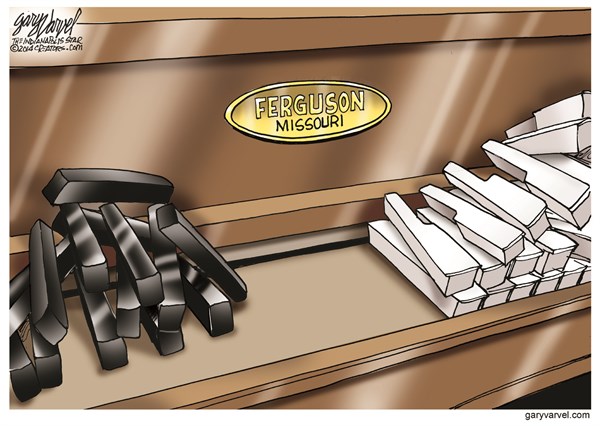US-Africa Leaders Summit in Washington: Issues on the Surface and at the Core
(Pan Arab) on 10 August 2014
by Hassan Muneimenah (link to original)
President Barack Obama is highly popular among sub-Saharan African countries where they see him as a symbolic end to the tense era of colonialism and alleged urbanization between the West and "black" Africa, and which, after African nations achieved independence, turned into something of a pragmatic economic, political and security guardianship (though it is whitewashed by words of appreciation, generally void of any credibility given the historical and cultural legacy in Africa). Obama is the "black president" from Kenya who, just by his existence, shatters any idea of Western parentage to the continent and imposes an implied parity between Africa and other countries in American culture and in international understanding. Despite the symbolism of Obama's status for global cultural history, it may actually end up being the most significant aspect of his presidency.
It's no secret that Obama's racial identity unleashed two silent political trends that ended up taking on quite a bit of force. First, there is the inauthentic criticism of his performance due to the anxiety over his race, particularly in cultural circles that have not outgrown systemic racism. Second, there is the immunity — no, infallibility — which Obama enjoys in the minds of progressives who feel that they must support the first black president. Those of the first trend tend to exaggerate the criticism of the president so as to vent their rejection of his race. Those of the second trend were always ready to malign any and all criticism directed toward Obama, calling it racism. But this doesn't help bring clarity to what's really going on.
The U.S.-Africa Leaders Summit is no exception. It was full of symbolic gestures, speeches and promises, again without clarifying practical plans. American interests in the African continent are no different than the interests they have elsewhere, built on the trinity of security, stability and democracy; security is a most definite need, stability is a means to activate economic relations and democracy, which has weakened in recent years, is the basis to activate social and cultural relations.
The priority of security is independent of the succession of American presidencies and conferences; it is responsible for the push in recent years to form leadership separate from the armed American forces working in the African continent (Africom). The increasing American security presence in the continent has been paralleled by an increase in the spread of jihadi movements in the East and West. Although these movements have yet to become extremely dangerous, some of their works are now met with disapproval (such as Boko Haram's kidnapping of Nigerian girls).
As for the issue of stability, there's no doubt that among the various American concerns in Africa, health issues are particularly concerning. The Ebola outbreak coincidentally has come about just as the summit convened, highlighting the importance of health issues and the American conviction of the necessity of containing rampant diseases in Africa. Such is the means of attaining economic stability, which in turn provides investment opportunities and other mutual benefits. It has been noted that former president George W. Bush's push for curbing AIDS was clearly successful. The summit this week, then, sought to keep health a top priority.
Though everyone seems to be on the same page regarding health concerns, the issue of African governing powers, an important factor in reaching stability, is met with a great deal of awkwardness and difficulty. As African countries put things in place to establish regimes that were elected by world standards, the pervasive pattern of governments in the continent is still authoritarian, giving room for rampant corruption. While some may not object to the measure of economic progress brought about by corrupt regimes, they still present a major obstacle to American companies, which are subject to laws criminalizing corrupt behavior and must contend with European and Asian competitors.
While the conference excluded some African leaders who have an established history of tyranny, democracy and good governance, along with issues of human rights, remained for the most part out of the forefront, which is after all consistent with the status of such issues in the U.S. and with the formal nature of the conference.
Despite the historic nature of the conference and the fact that invitations to similar conferences are an established tradition among American presidents, this conference compliments and responds to the two aforementioned trends. This conference is of course the first one in which an American president is participating, but African leaders have already responded to similar invitations to conferences held by Chinese leaders. China, who considers the African continent a rich economic source for the future, is strides ahead of the United States when it comes to the momentum and size of new investments. The current American effort, therefore, is a correction in more ways than one, though it seems catching up with China is a difficult thing to do. The American focus on Africa did not start with the current president. On the contrary, the economic foundations were laid in order to establish parity and mutual benefit by former president Bill Clinton, who is still active in pushing for improving U.S.-African relations. Former president George W. Bush also acted to these ends.
The opportunities and challenges involved in endorsing U.S.-African relations stand before Obama, even though it all seems delayed, so long as this conference is not merely a photo opportunity for the first "African" U.S. president.

